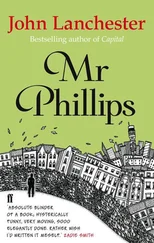I got up and went to the edge of the ladder and looked down. I could see the end of our lifeboat, which meant it was still there tied up; good. For a few minutes I looked around the horizon. It was a clear day with little cloud and not much wind, and I could see a very long way; blue sky and blue-green sea and not a sign of boats or planes anywhere. Good. I shook Hifa awake, gently at first, and then more firmly.
She blinked, opened her eyes, took a moment to focus. I could see her putting together what had happened, where we were.
‘Ouch,’ she said. ‘Wow. What?’
I pointed at the door. Hifa jumped up, going from groggy and just-woken to fully alert in a split second. Then she exhaled and slowed herself down for a moment, and we looked at each other. And then we went through the alcove door into the tower.
The inside of the tower was, at first sight, hard to take in. The only light came in through slit-like windows high in the walls and, as we entered from the bright outdoors, it was initially difficult to see anything at all. I gradually took in an impression of what seemed to be complete chaos. The floor was covered in pipes and cables and metal boxes and wooden crates, many of them partly smashed. On the side of the room closest to the door, where we were standing, the debris was piled so high it was almost impassable. I didn’t trust myself to clamber over the obstacle course until I could see properly, so we stood there for a few minutes and tried to understand what we were seeing. Then we began pushing through the mess. We stepped over and between pipes and cables and metal boxes as we went. This, the ground floor of the installation’s tower, had evidently been some kind of control centre. The far side of the room had seven or eight computer monitors, all of them black and silent. There were stacks of computer equipment on the floor of the room’s far half. The sense of mess and abandon was absolute.
There was a metal ladder in the corner of the room, the same kind that we’d used to get up onto the platform, passing through a circular hole in the floor above. We slowly and carefully climbed up it, Hifa going first. On this upper floor, the second of the tower’s three storeys, the windows were bigger and it was much easier to see. And that is where we met our host. A pale, very thin man, wearing nothing but black drawstring trousers, was squatting in the far corner of the room. He was just this side of emaciated; you could see his ribs, which were heaving in and out; he was panting with what must have been excitement or fear. His face was covered in thick dark beard and the only part of it easily visible was his eyes, which were wide and startled. He could have been any age from thirty to sixty. He was sitting next to one of the windows. Beside him, resting with the end down on the floor, was a metre-long telescope. That was clearly how he had spotted us and monitored our approach. In front of him was a cardboard box. The box was resting on a small low table, like a footstool. The bottom of the box had been removed and it had been placed on its side so the cardboard looked like a proscenium arch. On the floor also were small torn fragments of paper, folded over so they could stand up.
‘Hello,’ said Hifa. She walked across to him and squatted down so that she was at the same level as he was. I followed her and did the same. ‘My name is Hifa and this is Kavanagh. Thank you very much for lowering the ladder for us. You saved our lives.’
The man said nothing but moved some of the pieces of paper around while looking at them through the box. My first thought: he’s lost his mind, he doesn’t know who he is or where he is or what he’s doing. But there was something about the game he was playing which seemed orderly and full of intent. The pieces of paper were just that, pieces of paper in different colours, but they had been carefully folded, and he now took all of them out of the box apart from one tall piece and a small flatter piece. He moved them around and then he picked other pieces of paper up and put them in the box and moved them around too. I watched him for a little while but there was no evident pattern to what he was doing. Hifa and I gave each other a quick look.
‘Do you mind if we take a little tour?’ said Hifa. The man made no reply but his head twitched. It might have been an involuntary movement but we decided to take it as a yes. We straightened up from our squatting and, like the pirates on the floating community, set out to take an inventory. As on the lower floor, the whole of this level was one big room. It was divided into two halves; our new friend was in the tidier section, where there were a number of chairs and a table covered in papers, as well as his cardboard box and telescope.
The other half of the room was as chaotic as it had been downstairs: an obstacle course of boxes and crates and huge circular cans. Hifa and I moved over to check what was in them, giving frequent looks back at the man, who didn’t seem at all bothered by what we were doing – he had gone back to shuffling his bits of paper around inside the cardboard box. Some of the crates I recognised as food crates, of the same type that we had on the lifeboat. I tapped the sides of them as I passed; about half were empty, about a quarter were part full, about a quarter were completely full. I felt a surge of hope, of joy. One of the full crates had a partially open lid; I lifted it and looked inside. There was a lot of food here, really a lot. It didn’t matter how old the tins inside were, this stuff lasted forever. As for the big storage cans, they might be water or they might be oil, but it was hard to think of anything else they could be, and whether they were water or oil, it was the best imaginable news. Hifa and I looked a question at each other and decided that we would wait a little before we opened them to find out. We didn’t want to seem as if we were launching a hostile takeover. We had just got here and who knew what our host might be thinking.
We went up the ladder to the next and last storey of the tower. Here again the windows were even bigger, so there was gradually more light as you went further up inside the tower. It was full morning now and blazingly bright. The layout on this floor was different. These had been, it seemed, the living quarters, divided into rooms off a central corridor, with huge windows at each end, so it was as if you were looking straight out into the sky. It was noticeably warm, not just sunlight-warm but central-heated warm – the first time I had felt external heat since we had been put to sea. I hadn’t really expected to feel warm ever again. Hifa and I turned to each other. Her eyes were huge.
We went into the first room. It seemed to be where the tower’s sole occupant lived. There was a mattress on the floor and a chair with some bedding folded over it. On the bedding there was a thick paperback book with a torn cover. I picked it up to find the title page. It was the complete works of Shakespeare. When I put it back, the chair moved, and I could see what was sitting on the floor behind it – the best thing of all, the best possible thing, an oil lamp. My heart jumped. But maybe it was a defunct object, part of the detritus and debris that were everywhere in the tower? Surely there couldn’t be … I sniffed: I thought I could smell something I knew well but hadn’t come across for what felt like a very long time. I sniffed again: I was sure: oil. I heard a sound which might have been Hifa catching her breath or could easily have been me catching mine.
‘Oh my God,’ said Hifa. ‘Oh my God.’
‘However much there is, it’s a finite supply, it can’t last forever,’ I said.
‘Yes but it’s oil,’ said Hifa, which was true. It was oil. I wanted to shout, oil, oil, oil! Light and heat. In that moment I realised something. I had internalised the idea that I would never again have light and heat – would never have control of them, would never be able to make it bright or make it warm, just by deciding that’s what I wanted. An ordinary miracle, a thing we had done dozens, maybe hundreds of times a day all our lives before the sea, and which had then gone away for ever, and had now come back. I felt something strange on my face and touched it and found that I was crying. So was Hifa: not contortedly or in grief, but with tears running openly down her cheeks. I reached out and touched them and she did the same to me.
Читать дальше












